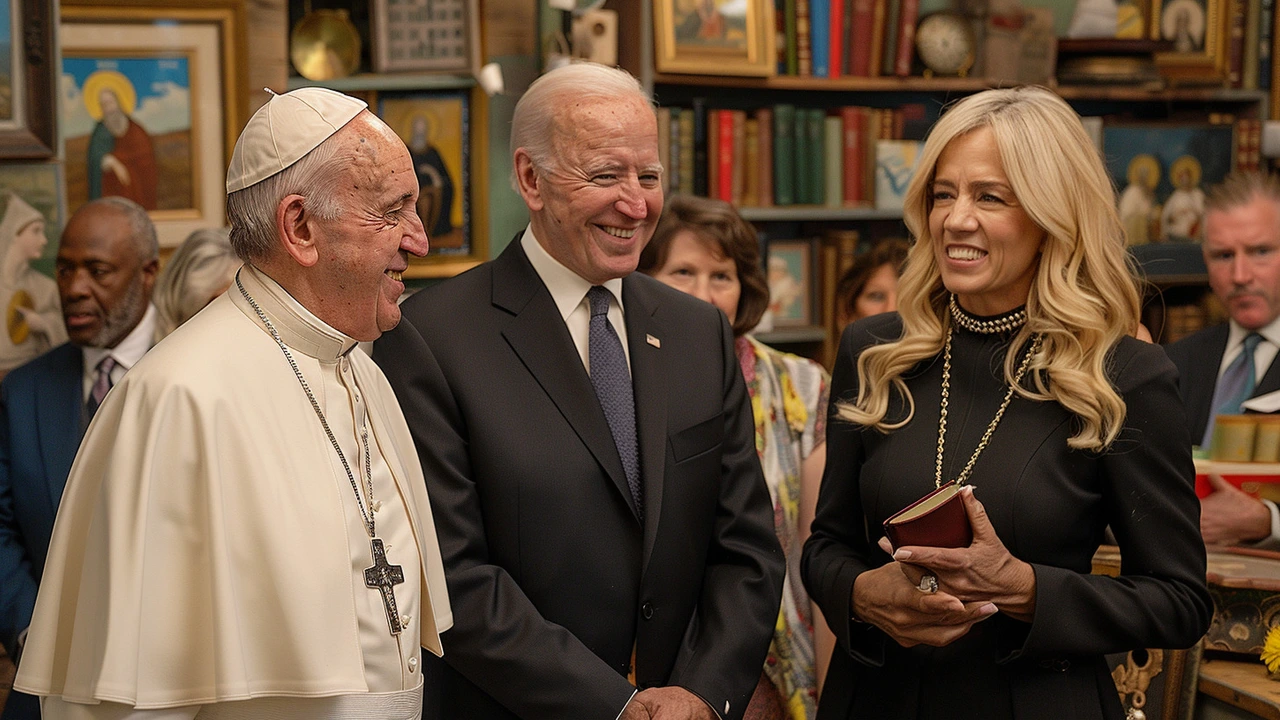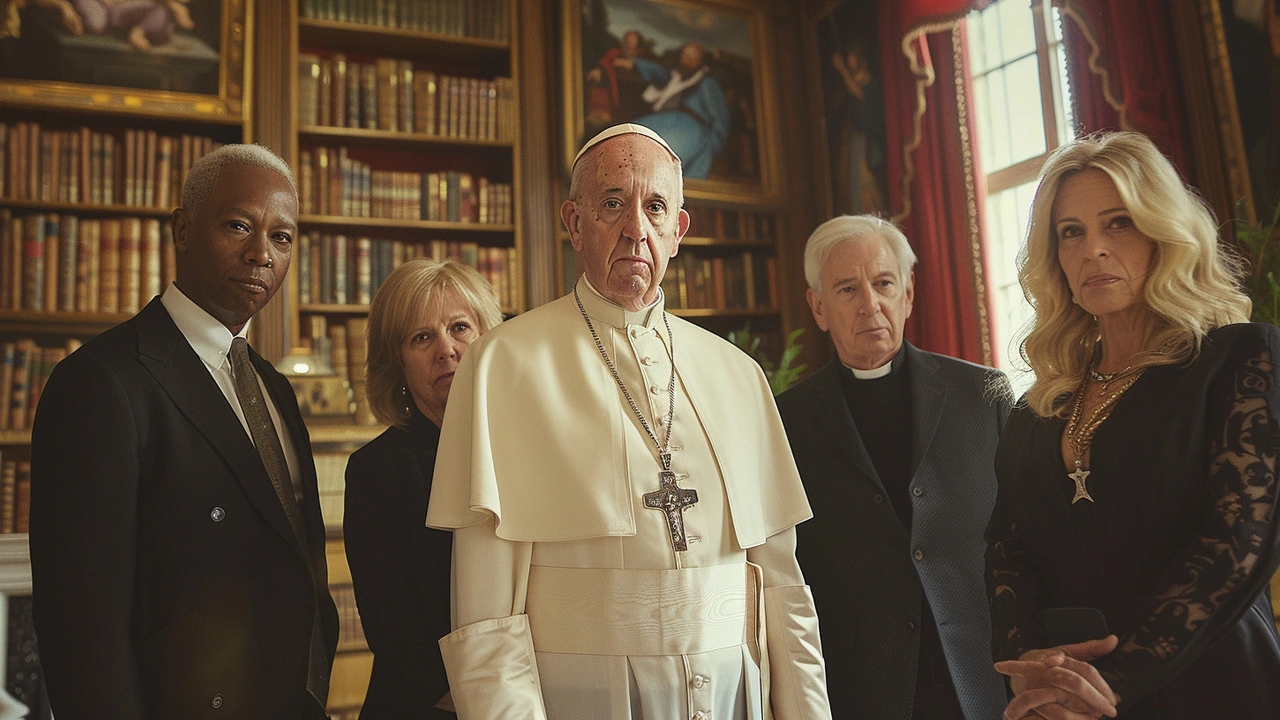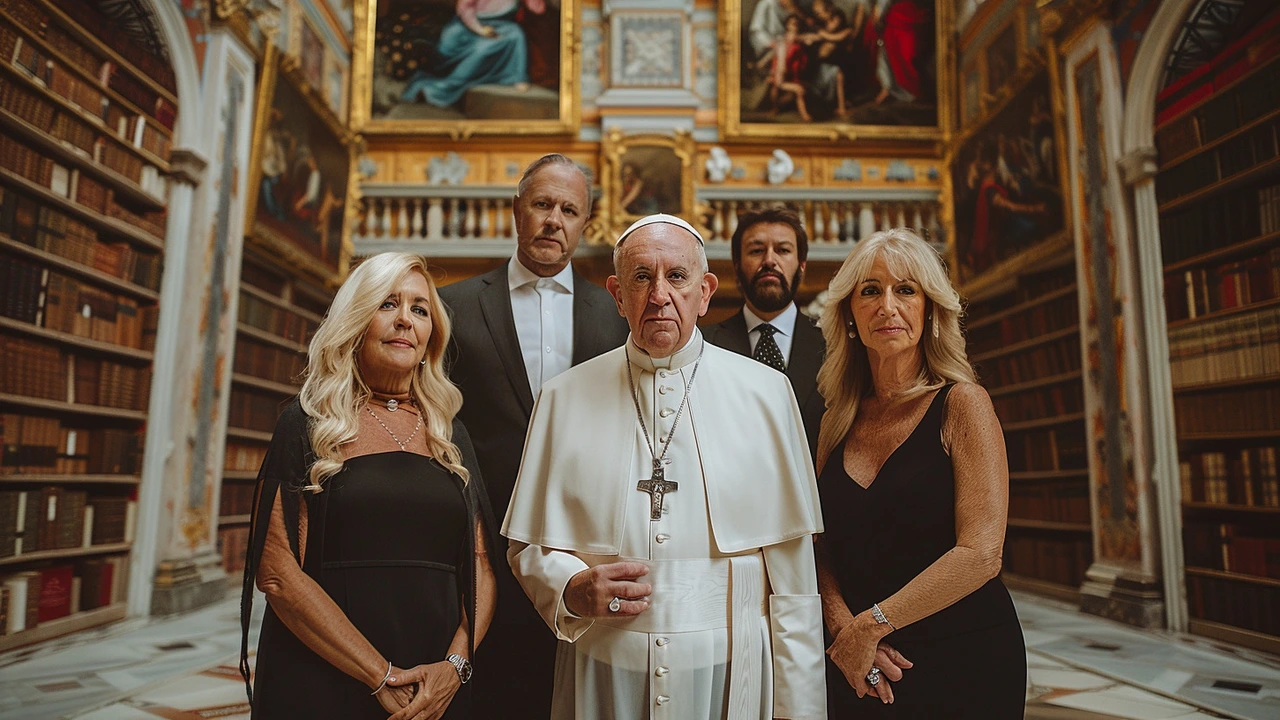Significance and Expectations: Biden and Pope Francis' Meeting Amid Global Conflicts
Biden and Pope Francis to Meet at G7 Summit
In a highly anticipated meeting, Pope Francis and U.S. President Joe Biden are set to come together on June 14, 2024, during the G7 Summit in southern Italy. This encounter, marking their second face-to-face discussion, follows their initial meeting in October 2021. Given the weight of ongoing global conflicts and the nearing U.S. presidential election, this meeting holds substantial significance.
During their first meeting, both leaders demonstrated a unique camaraderie and shared values such as social justice, poverty alleviation, and climate change. However, the context has evolved significantly since then with the eruption of intense violence in Gaza and an ongoing war in Ukraine that has brought global tensions to a boiling point. These new challenges will undeniably shape their upcoming deliberation.
The Situation in Gaza: Diverging Views
One primary topic expected to dominate their discussion is the escalating conflict in Gaza. Pope Francis has been a vocal advocate for immediate cease-fires, consistently calling for the cessation of violence and urging for dialogues towards peaceful resolution. On the contrary, the U.S. administration has approached the conflict with different strategies, often emphasizing military support and defense postures.
As the conflict exacerbates humanitarian crises, Biden and Pope Francis are likely to confront their differences head-on. The pope's unwavering stance on humanitarian principles and Biden’s geopolitical strategies make their dialogue particularly critical for setting new precedents in international diplomatic engagements. The convergence on shareable solutions, however limited, could provide much-needed hope to millions impacted by the ongoing strife.

Ukraine: Strained Relations with Western Allies
The conflict in Ukraine adds another layer of complexity to their dialogue. Since Russia’s invasion, Pope Francis has made a series of statements that have at times strained the Vatican’s relations with Western allies, including the United States. The pope has voiced concerns over the West's military responses and has persistently called for peace negotiations.
Biden, on the other hand, has been a staunch supporter of Ukraine's defense against Russian aggression, facilitating significant military and financial aid. His administration views the conflict through a prism of global security and democratic ideals that must be defended. Despite this, Biden acknowledges the depth of the humanitarian crisis and the need for diplomatic avenues, creating potential grounds for common discourse with the pope.
Repatriating Ukrainian Children: A Common Goal
Amidst their differing perspectives, one notable area of cooperation is the joint effort to repatriate Ukrainian children abducted by Russia. Both the U.S. administration and the Vatican have committed to this humanitarian cause, recognizing the profound psychological and social impact on the young victims of war. This shared endeavor could serve as a bridge over their political divides, reinforcing the potential power of unified global humanitarian action.
The humanitarian crisis in Ukraine has seen thousands of children separated from their families and communities, making this a pressing issue that transcends political rhetoric. Biden and Pope Francis are expected to amplify their commitment to this cause, potentially outlining strategies that combine diplomatic, economic, and social efforts to expedite the repatriation process.

Looking Forward: The Broader Implications
This meeting is not just a bilateral discussion but carries broader implications given the current geopolitical climate. As the U.S. gears up for a presidential election, Biden’s diplomatic engagements, especially with influential global figures like Pope Francis, are under intense scrutiny. The outcomes of this meeting could influence public perception and demonstrate Biden's competency in handling international relations and conflict resolutions.
Moreover, as global leaders converge in southern Italy, the G7 Summit itself offers a platform for addressing multiple global challenges ranging from economic instability to climate change. Biden and Pope Francis' meeting amidst this backdrop highlights the interconnectedness of global issues and the need for collaborative, multi-faceted approaches.
The Path to Peace: A Shared Commitment
Despite their differences, both Biden and Pope Francis share a profound commitment to peace. Their dialogue is expected to reflect this shared vision, even as they navigate their distinct strategies and perspectives. The emphasis will likely be on fostering dialogue, humanitarianism, and proactive steps towards resolving conflicts.
For millions worldwide, this meeting symbolizes the hope that despite political divides and complex geopolitical landscapes, leaders can come together to champion peace and humanitarian values. It remains to be seen how their discussions will translate into tangible actions, but the intent and symbolic significance of their meeting cannot be understated.
In conclusion, the encounter between President Biden and Pope Francis at the G7 Summit is more than a diplomatic engagement. It is a critical moment that underscores the importance of dialogue, understanding, and shared human values in addressing some of the world's most pressing issues. As we anticipate the outcomes, the world watches with bated breath, hoping for a renewed commitment to peace and global cooperation.
